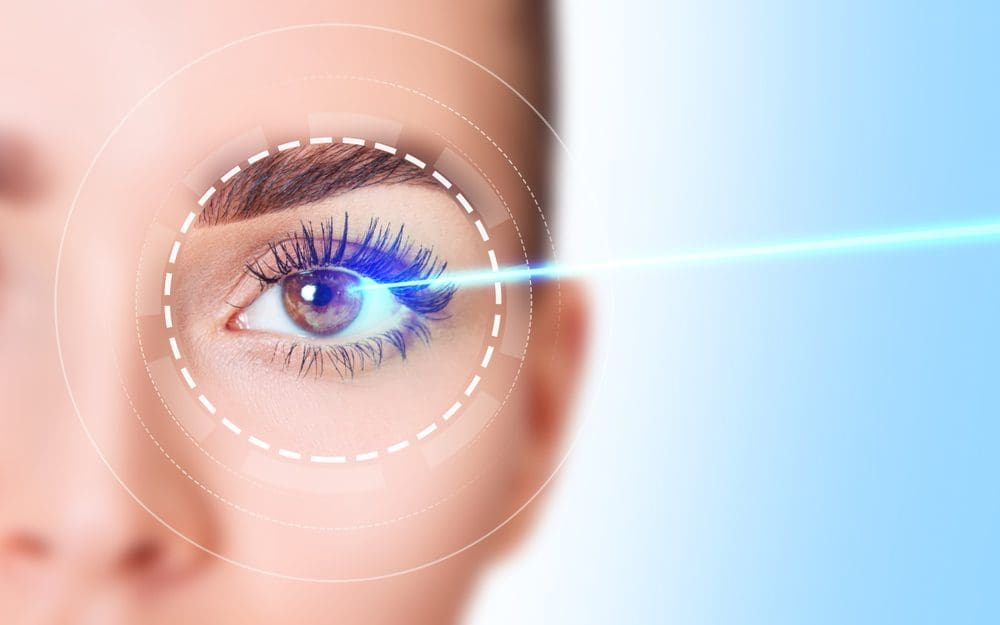If you’re not one of those lucky people who can just wake up each morning and see perfectly, this post is for you! Wouldn’t it be nice to have 20/20 vision (for many cases), without glasses or contacts? Here’s what you need to know about laser eye surgery and whether it’s right for you.
What Is Laser Eye Surgery?
Laser eye surgery, commonly referred to as LASIK (laser-assisted in situ keratomileusis), is a corrective vision surgery that uses a specialized laser to cut and change the shape of the cornea (the transparent, dome-shaped tissues at the front of the eye). The cornea is responsible for refracting light onto the retina; if light bends incorrectly, it can lead to vision conditions like nearsightedness, farsightedness, and astigmatism. Reshaping the cornea corrects light refraction, which in turn, improves vision.
Is Laser Eye Surgery Risky?
LASIK is considered very safe when performed by a trained and licensed operating surgeon. During a consultation, your doctor will inform you whether you are a good candidate for the procedure. If you are, there are still some risks and side effects that you should be aware of. For example, some people experience dry eyes after laser eye surgery since the cornea will be numb and needs time to heal before it can stimulate tear production. Typically, dry eyes can last about 2-12 weeks; in rare cases, they can be permanent.
After the procedure, you should expect to see halos and maybe glares. Seeing halos is a common side effect, but they typically subside as fluid clears the cornea. In rare cases, patients end up with permanent glares and halos, but this is usually because of improper treatment.
And as with any procedure or injury, there is also a risk of infection. Since lasers create tiny, precise incisions, the risk of infection is small but still present. Reputable eye centers will offer clean, safe surgery environments with HEPA-filtered air and use antibiotics during surgery and preparation.
Does It Hurt?
LASIK is typically a painless procedure. Before the surgery, your surgeon will give you anesthetic drops to numb your eyes. After the anesthesia wears off, you may experience mild discomfort or pain, but this is usually short-lived. Other temporary side effects include burning, itching, or the sensation that there is something in them.
Recovery time
First, make sure you have someone to drive you home and care for you for the night. The next morning when you wake, you will likely feel like a new person, with new clear vision!
What Are the Benefits?
Dr. Eric Donnenfeld, former president of the American Society of Cataract and Refractive Surgery, says that overall, 96%-98% of LASIK patients end up with 20/20 vision – and some even end up with vision that is better than 20/20.
In addition to regaining your vision, laser eye surgery also helps you ditch certain daily annoyances: Never again will you forget your glasses or lose a contact in the middle of the day! And think of all the savings you’ll incur when glasses and contacts – and everything that comes with them – are no longer regular expenses.
Have you had laser eye surgery? Share your experience with us in the comments below!






